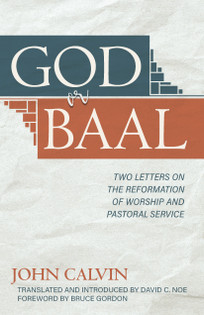Regi Addictissimus
Completely sold out to the King
From the very moment that the altar appears, it is really not much different from the composition of a typical table. But the very designation altar proclaims that it is intended for the performance of a sacrifice. Now this itself clearly contains blasphemy. You see the sacrificial officiant approaching, boasting that by the anointing of four fingers he has become the peacemaker between God and man. He sets out the promise of Christ, that promise by which Christ sets before His servants His own body and blood to be eaten and drunk under the symbols of bread and wine. This promise, ripped away from believers in the church and torn from the table, the priest claims for himself and for other butchers like him. This priest dishonors the heavenly Supper with the name Mass, for in it the whole Supper is turned on its head and perverted. The people are present, fully convinced that each of these activities is divine. You are thoroughly implicated in this when you pretend that you are bound by the same religion. When the cheating illusionist comes closer to the altar, he begins to act out the parts in his little fairy tale. Some of these are done with motion, others by standing still.60 And he prays the magical whispers by which he thinks—or at least certainly wants others to think—that he is going to call Christ down from heaven to the sacrifice. With these actions he reconciles God to the human race, as though he were the substitute for a completely dead Christ. When you see that the whole mob accepts these with similar reverence as they did the activities mentioned before,61 you don a mask to imitate that same reverence also. Your face instead should display, at the very least, the most graphic abhorrence of this same spectacle.
60. The metaphors here, both drawn from the stage, combine elements of a magician and an actor.
61. I.e., practices not as inherently offensive as the Mass.
John Calvin. God or Baal: Two Letters On The Reformation Of Worship And Pastoral Service. Reformation Heritage Books. 2020.

 bit.ly
bit.ly
60. The metaphors here, both drawn from the stage, combine elements of a magician and an actor.
61. I.e., practices not as inherently offensive as the Mass.
John Calvin. God or Baal: Two Letters On The Reformation Of Worship And Pastoral Service. Reformation Heritage Books. 2020.

God or Baal: Two Letters on the Reformation of Worship and Pastoral Service (Calvin)
Puritan and Reformed books at discounted prices.
